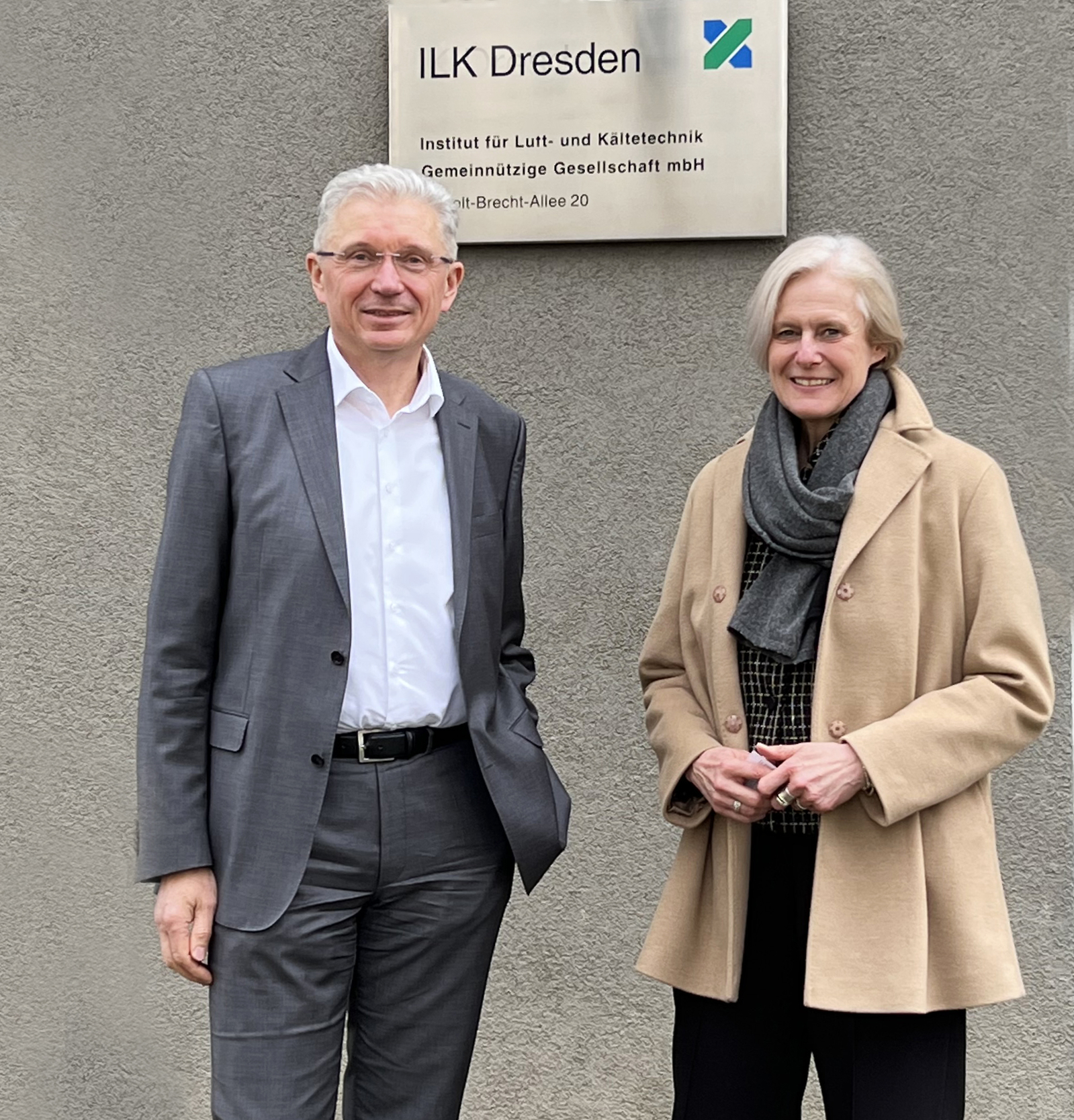Professor Katrin Salchert (President of the University of Applied Sciences Dresden) and Professor Uwe Franzke (Managing Director of the ILK Dresden) wonder, how the inventive genius can be re-inspired in students and teachers.
The University of Applied Sciences if only three kilometers linear distance away from the ILK in Dresden – an absolute plus on the megatrend map of “15 minutes city”, the idea of which is to be able to reach every important spot in a city within 15 minutes by bike. In this specific case, it would be an especially GREEN way. First, because it leads right through the Great Garden. And second, because both institutions have been working for the climate, the environment and sustainable developments for many years.
But there is more to bring life to the cooperation treaty of twelve years. Both – the President of the University of Applied Sciences as well as the Managing Director Prof. Uwe Franzke of the ILK Dresden – worry about the significant decline of scientific offspring in the MINT subjects. Looking at the global challenges and Germany’s situation concerning raw materials, it quickly becomes clear that only intelligence, inventive genius, scientific offspring and the transfer of knowledge can consolidate the quality of life in and the competitiveness of our country. During the last six years, the ILK Dresden has overseen the intermediate and final exams of about 250 students, forty of them students at the University of Applied Sciences. The University of Applied Sciences currently has about 4.800 students in 42 study programs.
What can be done to attract A-level students to the work of an engineer?
„What do we need to explain the importance and the attractiveness of technical study programs for our future and a sustainable environment to students?”, asks Prof. Katrin Salchert. Professor Uwe Franzke sees a strength in the common appearance of all of Dresden’s scientific institutes, e.g. during the “Long Night of Sciences”. „Dresden‘s strength lies in the close and stable network of all scientific institutions and it lies in short distances – regarding place as well as communication. We should present this strength in a confident and unified manner.”
The institutes will have to open up even more. Science should not be perceived as the ivory tower, but rather as an exciting medium – just like the air, which surrounds us every second. Prof. Salchert and Prof. Franzke agree: we will need more invitations to multipliers such as headmasters, to teachers and parents in order to make the fascination of Dresden as a center of science and research transparent, and to fill abstract megatrends like urbanization, neo-ecology, new work, gender shift or connectivity with concrete, vivid and livable life. This, however, will be a way longer than 15 minutes.

















